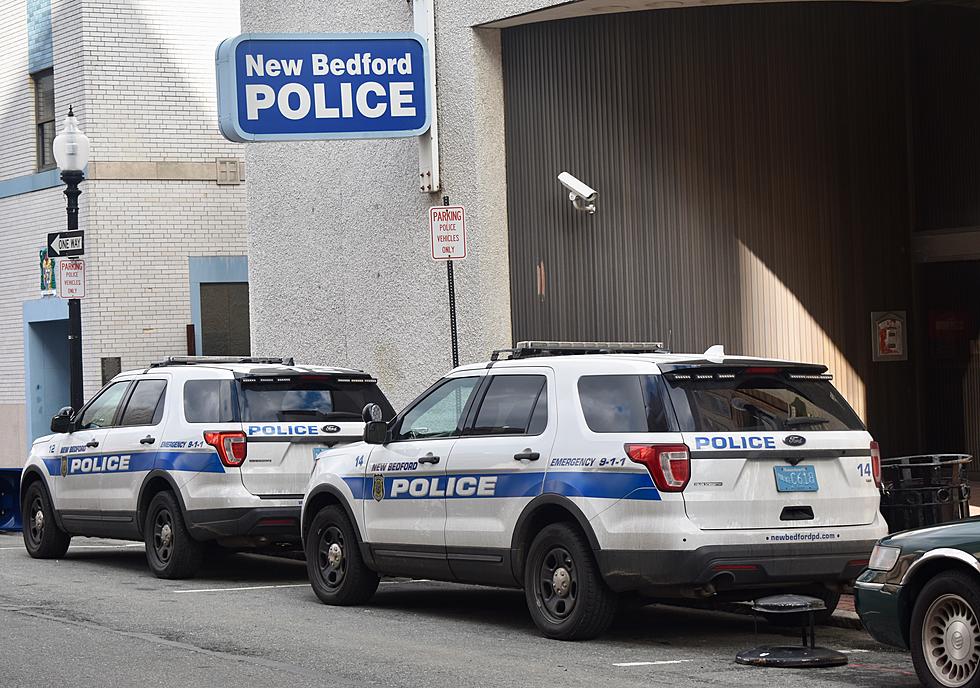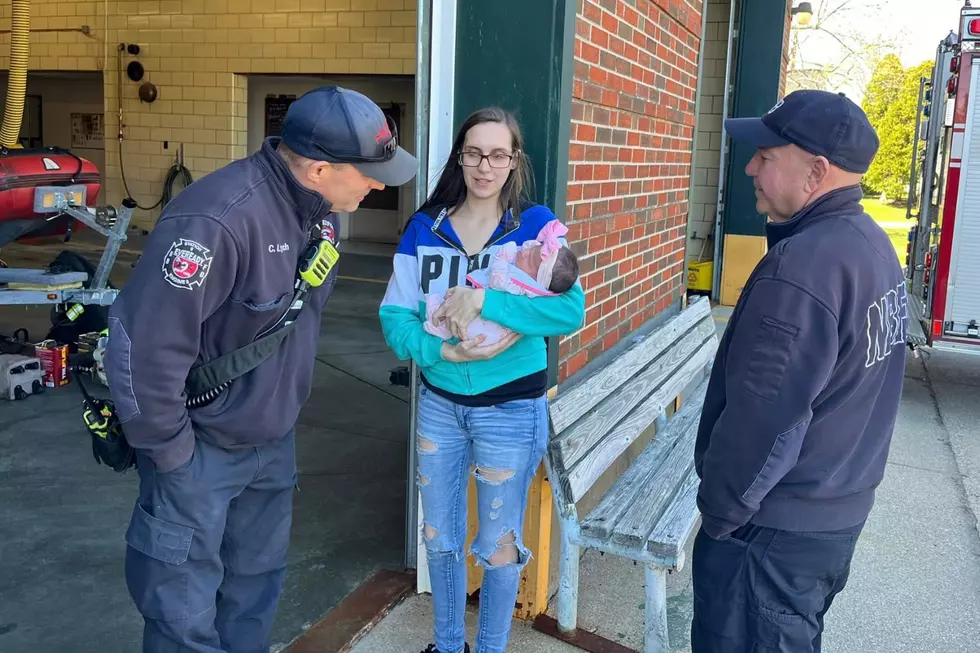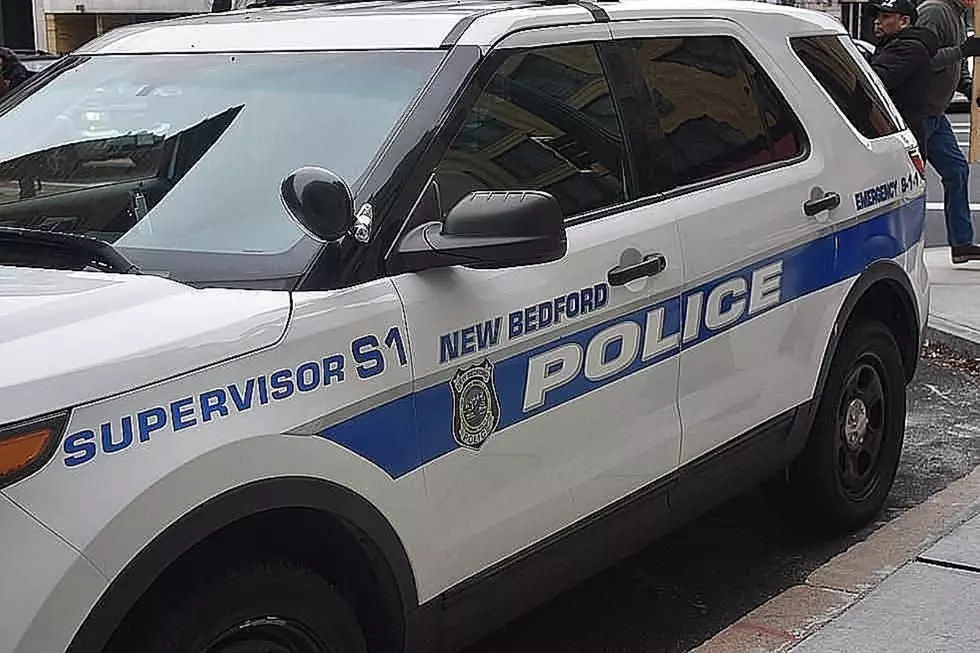
Read: Draft NB Police ‘Use of Force’ Recommendations
A commission appointed by New Bedford Mayor Jon Mitchell to review use-of-force policies within the city's police department has released its draft recommendations. The New Bedford Commission to Review NBPD Use of Force Policies met from July through November. The commission, chaired by Councilor Brian Gomes, on Friday released two documents: a list of draft recommendations, and a set of "related recommendations, observations, and concerns." Both documents are reproduced here in their entirety. The commission plans a public hearing via Zoom on Dec. 2 from 6 p.m. to 7:30 p.m.
DRAFT RECOMMENDATIONS:
1. A Commission on the Police Use of Force should remain in existence. Does not necessarily need to be this same group, can be appointed with terms etc.
2. Using Brookline Police Dept.’s “Use of Force” policy as a guide, enhance the emphasis on de-escalation throughout the NBPD policies as recommended in Proposed Language for Revised Policies documents.
3. That the Use of Force policies include a "Duty to Report" clause, whereby every officer will be required to report violations of the Policy, abuses of the public, and other inappropriate actions during their duty. Failure to report such instances should be considered a violation of the Policy and should result in appropriate disciplinary action.
4. Require the duty and obligation of other officers on an incident scene to intervene when they witness the excessive use of force by a fellow officer. (Even if this is spelled out in the NBPD Rules and Regulations, it should be reiterated in the Use of Force policies.)
5. That the phrase “lawful and appropriate” be added to the Use of Less-Lethal Force: IV. General Considerations, Part C. "Control is accomplished whenever a person complies with an officer's lawful and appropriate directions..."
6. The section on Verbal Commands needs to be expanded upon and should permeate many sections of the Use of Less-lethal Force policy.
7. The prohibited control techniques should be spelled out more specifically, eliminating not only choke holds but other techniques that have potential deadly consequences, as well.
8. In the USE OF LESS LETHAL FORCE policy, sec. V. B. include “7) awareness of, or apparent, mental or emotional instability of the subject.”
9. Require data collection (including race/ethnic data) and regular comprehensive reporting of police use of force and make such reports available to the public. New Bedford Commission to Review NPBD Use of Force Policies
10. Incorporate the use of new language as it relates to prohibiting the shooting of unarmed persons.
11. The use of drive stun is to be addressed in accordance with update language from Policy -01 and Policy -02.
12. Recommendation to adjust language in Use of Deadly Force as indicated in highlighted sections: At least annually, all sworn officers authorized to carry weapons are required to receive in-service training and testing on the Department’s Use of Force policies and demonstrate proficiency with all approved lethal weapons that the officer is authorized to use. Inservice for other less-lethal weapons and weaponless control techniques shall occur at least biennially. (1.3.10) (1.3.11,1.3.12). All officers shall be given a copy of the Department’s Use of Force policies and must annually pass a written examination before being authorized to carry a weapon. Proficiency training shall be provided by a certified weapons or tactics instructor qualified in the respective less-lethal force weapons.
13. Recommendation to adjust language in Use of Deadly Force as indicated in highlighted sections: “Whenever an officer fails to obtain a qualifying score with his/her duty firearm or fails to meet proficiency on use of force policies, the officer will be temporarily reassigned and relieved of all police duties requiring a firearm…"
14. Recommendation to remove Section: VII Use of Firearms -- Part B subsection 4: “officers may discharge their firearm, without the intent to kill or disable, if it is reasonable to believe that he/she has no alternative method of convincing a would-be attacker that he/she is ready and able to defend himself/herself or others if the potential threat is not discontinued. The provisions of this paragraph shall be limited to extraordinary circumstances because of the possibility that a bullet could ricochet and cause injury to officers, other innocent persons, or may prompt either return fire from the suspect(s), or precipitate the use of firearms by other officers.”
15. Recommendation to Section V: Use of Less-Lethal Force Part D add the following highlighted text. The following less-lethal force options are authorized, and officers are required to go through this list in ascending order whenever feasible.
16. Language in all relative policies should reflect “public safety” as the primary purpose of those policies. Ie. It is the policy of the New Bedford Police Department to place its highest New Bedford Commission to Review NPBD Use of Force Policies value on the life and safety of its officers and the public. In the conduct of policing, all officers must embrace the obligation to ensure that the safety of the public is preserved to the fullest extent possible. Likewise, the safety of all officers must be appropriately safeguarded in all actions of the police. Safety of the public and the safety of the officers must be regarded with the highest priority.
17. Recommendation under II. Policy should include “when an individual is armed or officers or another life is in danger.” Nothing in this policy should be construed to prohibit officers from using whatever means are necessary. Unarmed individuals posing no threat should not lose a life.
18. Recommendation to III. Definitions: Professionalism as it relates to policing should be defined. It is referenced within the documents but assumed rather than defined.
19. Recommendation to VI Training and Qualifications: Officers physical and mental wellbeing should be evaluated annually.
20. Training is provided to all Officers at the time of promotion to ensure they are skilled in assessing physical and mental well-being.
21. Recommendation to Use of Deadly Force Section XII. Add at end of paragraph: “An annual summary of such analyses shall be made available to the public, upon request.
22. Recommendation to Use of Less-Lethal Force: Add at end of paragraph: “An annual summary of such analyses shall be made available to the public, upon request.
23. Recommendation to Electronic Control Weapons: Insert to V. Reporting: An officer who employs an Electronic Control Weapon for other than training purposes shall notify her/his Division Commander immediately and submit a written report through the Division Commander to the Chief of Police forthwith. The Division of Professional Standards shall produce and forward to the Chief of Police an annual analysis of all use of Electronic Control Weapons for indications of patterns or trends that could indicate training needs, equipment upgrades, and or policy revisions. An annual summary of such analyses shall be made available to the public, upon request.
SECONDARY DOCUMENT: RELATED RECOMMENDATIONS, OBSERVATIONS, AND CONCERNS - PUBLIC DRAFT
The following recommendations, observations, and concerns were captured by the New Bedford Commission to Review NBPD Use of Force Policies throughout the months of July, August, September, October and November 2020. It is recognized that while the nature of these items is beyond the mandate of the Commission, it is important that these items be forwarded to Mayor Jon Mitchell as significate time was spent in discussion on each topic and each bears significant relevance for Police reform.
The very limited scope of the charge given to the Commission guarantees that only very minimal reform of policing in New Bedford will take place, if all we are about doing is tweaking a package of policy documents on the use of force. It is an important element in transforming policing but does not equate to the totality of transformation of policing consistent with the Obama Foundation’s Mayor’s Pledge. Several other measures and initiatives would need to be considered and undertaken to approach significant transformation of policing. Reforming the use of force policies alone is insufficient for overall Police reform.
A culture of accountability in law enforcement is of utmost importance. A culture of accountability in law enforcement builds trust between the Police and the community. The public holds the Police to high standards. When Police Officers violate the rules, they break public trust and lose credibility. This ultimately makes policing more difficult, as people are unlikely to cooperate with )olice if they don’t trust them. Accountability is a key component of effective Policing efforts.
When the public sees that law enforcement has systems in place to enforce Police accountability, it is more likely to see Police as legitimate. And therefore, they will be more willing to assist the Police.
It is important for Officers to be mindful of their actions and maintain objectivity, keep an open mind, and give others the benefit of the doubt. Police Officers shouldn’t be in a hurry to make an arrest and above all, never underestimate the value of courtesy and respect.
1. The Commission strongly endorses New Bedford’s adoption of body camera usage for Police Officers when on duty. The Commission recommends a pilot program be created for Officers to test body cameras and that all funding sources be leveraged to ensure a body camera program is implemented and sustained.”
2. The NBPD should not execute “NO KNOCK WARRANTS” without a Judge’s approval.
3. The NBPD should broadly publicize and promote the procedure for filing a complaint against the NBPD to residents of New Bedford, at schools and in marginal communities.
4. The Commission seeks more training and guidance for Police Officers on how to engage without those experiencing mental illness, intellectual and physical disabilities. Sensitive and informed practices in these matters may be extremely valuable in preventing or minimizing wholly avoidable adverse outcomes that endanger both citizens and Police Officers. This is consistent with our support for enhanced de-escalation training.
5. NBPD Police Officers should be trained annually on the use of force policies and be required annually to demonstrate proficiency in the comprehension and application of such policies.
6. All NBPD Police Officers should be trained annually on implicit bias, explicit bias, antiracism, and cultural competency. Emotional Intelligence testing should be required for hiring.
7. An independent review committee, which includes people who are not Police Officers, should be on the review committee for any cases related to use of force and these documents should be public.
8. Culturally responsive, comprehensive de-escalation training must be provided to all officers. Teaching Police Officers to rely on communication and negotiation tactics rather than physical force can effectively teach a guardian-style mentality.

More From WBSM-AM/AM 1420









